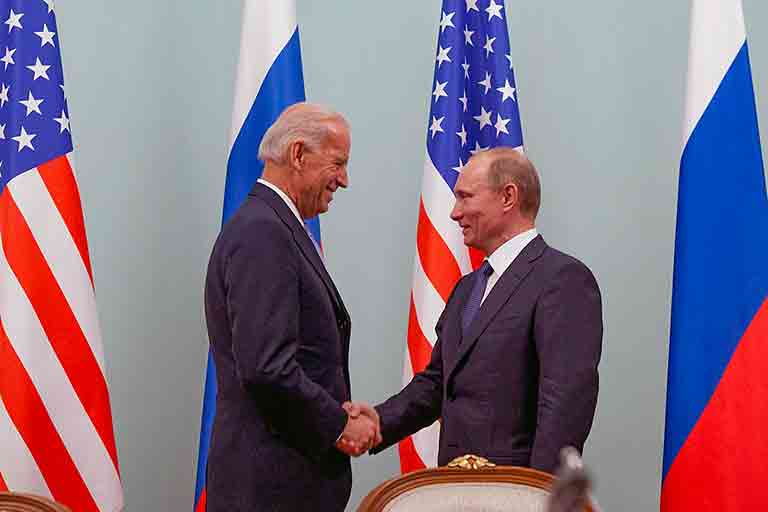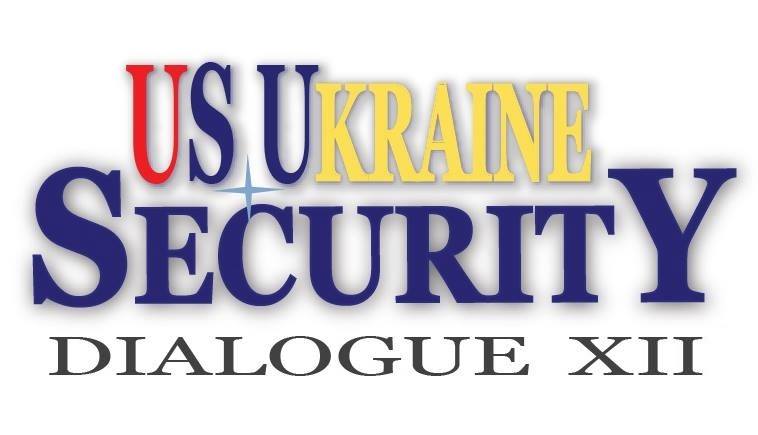Recent tensions between Biden and Putin reflect a long-term confrontation between the US and Russia. Let us approach this continuous threat from a broader geopolitical perspective. The United States needs tools to continue securing peace in Europe while focusing on China.

Joe Biden and Vladimir Putin (Source: Wikipedia)
“Winning battles while losing wars is an expensive waste of blood and treasure. Armies that win battles without following through to consolidate tactical gains tend to lose wars, and the U.S. Army has experience on both sides of the historical ledger in this regard.” (US Military Review, September-October, 2019). Consolidating Operational Gains (COG) is a vital element of military strategy. The consolidation of American gains in Europe after World War II, has been a continuous endeavor. Today, with the US interest turned onto China, it is critical that we keep in mind the COG perspective in Europe. Poland was involved in a protracted battle for independence and self-rule since the 1939 German and Russian aggression. From the Polish perspective, Germany and Russia collaborated with each other to partition Poland. Although Poland lost many battles, it won the war in 1989 when the Solidarity movement broke the back of the Soviet Union. The United States was a key ally in that war and, as a result, Poland regained her independence. It is in the interest of both Poland and the United States to work as partners and coordinate their respective COD planning and counter the increasing influence of Germany and Russia in modern Poland, which weakens the position of Poland as a potential strategic partner in balancing US interests with China.
For the United States, the challenge from China forces a new approach to the balance of power in Europe. After Brexit, France and Germany are sending signals indicating their respective national, rather than purely EU, interests. Russia is pursuing her policy of projecting constant and imminent threat to her western neighbors and NATO’s Eastern flank. It is worth remembering that the United States built the current strength of Germany. After World War II and Germany’s unconditional surrender, the United States financed Germany’s infrastructure. It was the American Navy that has been securing the profits of Germany’s peace dividend by securing global blue water security. It was also the United States Lend Lease Program that built the Soviet Union’s capacity during World War II. It was the United States that decided not to continue WW II until Poland was liberated. As the result, Russia benefitted from her attack against Poland in 1939 and expanded her territory further westward.
Today, again there are politicians in Germany and Russia who think that working out a deal together will bring them profits. They seem to forget that German–Russian scheming behind the backs of other countries in 1939 led to a disaster. Russians and Germans treat Ukraine as a bargaining chip whose future depends on their input and do not consider Poland as a partner worthy of serious consultation in that matter. If Americans continue the policy of deferring to EU and Germany in Ukraine, soon they might have both Germany and Russia combined to deal with.
The Unites States could decide that investing in Poland, as it did when assisting Russia in the 40’s, and Germany in the 50’s, would create a significant force needed to balance potential German-Russian coalition. With Poland, Lithuania, Ukraine, and Belarus as one confederated bloc, Russia’s threat to Europe would be significantly reduced. Increasing the investment in the Three Seas Initiative might be a practical way to pursue this policy. A proactive American stance would be strengthened with the pressure to demilitarize Kaliningrad. Peace dividend of such proactive stance would free resources needed for the US China confrontation.
Concern over how the Russians “feel” about changes of American posture in Europe is an obvious mistake. Of course, the Russians do not like losing their control over Poland, Ukraine, and Belarus. Of course, they would hate to disarm Kaliningrad. We need to ask ourselves not what Russians want but what do we want? Do we want peace and stability in Europe, or do we want to please the Russians?
How would the Russians’ posture look if Poland, Lithuania, Ukraine, and Belarus were a unified block with operational capacities and Kaliningrad were disarmed? It seems that the peace dividend after the expense of Cold War, which allowed for the liberation of Poland, profits Germany more than the United States today. It is time to reconsider the post WWII calculus in Europe. As the confrontation with China grows more imminent, Germans and Russians would like to use Poland as their bargaining chip.
It is worth considering planning a few moves ahead in the game of chess with Russia, rather than merely responding to Putin’s gamesmanship. Game on. Good luck President Biden.






